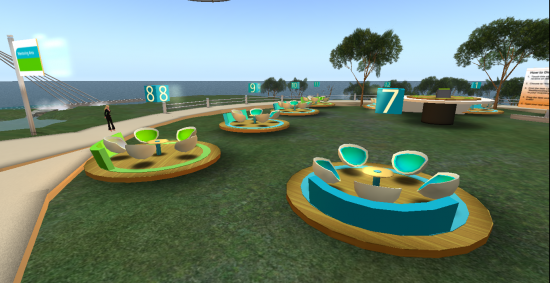After ReactionGrid announced plans to patent a process for deploying and managing OpenSim earlier this month, the open source community responded with dismay.
In comments on the initial announcement, and in ReactionGrid’s follow-up clarification, and in the OpenSim discussion list, open source advocates worried that patenting processes might hurt the development of OpenSim.
A similar discussion erupted in December on LinkedIn and in other forums after IBM experts told Hypergrid Business about their patent for virtual world design methodologies.

For example, Blogger David Miller (subQuark) said on the iliveisl blog: “I would hate to see my work … and that of many passionate and talented educators and eLearning developers threatened by this type of general patent.”
The patent issue is not new to OpenSim. Core developers warned against OpenSim patents a year ago.

But according to Tré Critelli, an expert in virtual worlds legal issues and an attorney at Des Moines-based  CritelliLaw, p.c., practically speaking, copyright issues actually pose a bigger threat to the open source development process than patents.
Not copyright issues in the sense of stolen content being distributed on OpenSim grids — copyright issues in the sense of pieces of code that may be included in the code base in violation of its license.
That’s because, under U.S. law, any time a programmer writes a piece of code he or she automatically gets the copyright to that code.
“So each of the hundred contributors to an open source software application would have a claim on what they have created unless they had agreed to relinquish or license their claim,” Critelli said.
And that’s even without getting into the issue of competing open source licenses — for example, code licensed under the BSD license (which OpenSim uses) cannot be included in code licensed under the GPL license (which all the third-party viewers use) and vice versa. In practice, what this means is that developers from the two camps often don’t even talk to one another, to avoid possible contamination.
But while getting something copyrighted is easy and automatic, getting a patent is anything but.
“For one thing, if the process to be patented has been part of the open source community–and thus available to the public–it is questionable whether or not the patent itself can actually be given due to what is known as ‘prior art’,” he said. “Thus these types of patents are generally very difficult to obtain as by its very nature open source software is open to the public.”
In addition, getting a patent requires that the patent holder lets everyone know exactly what their secret is.
“That’s the quid pro pro for having the right to exclude others from using or selling that specific process,” he said. “That means anyone can look and see what process ReactionGrid is using and learn from that, thus inspiring innovation in the industry.”
- OSgrid back online after extended maintenance - April 16, 2025
- Analysts predict drop in headset sales this year - March 25, 2025
- OSgrid enters immediate long-term maintenance - March 5, 2025
